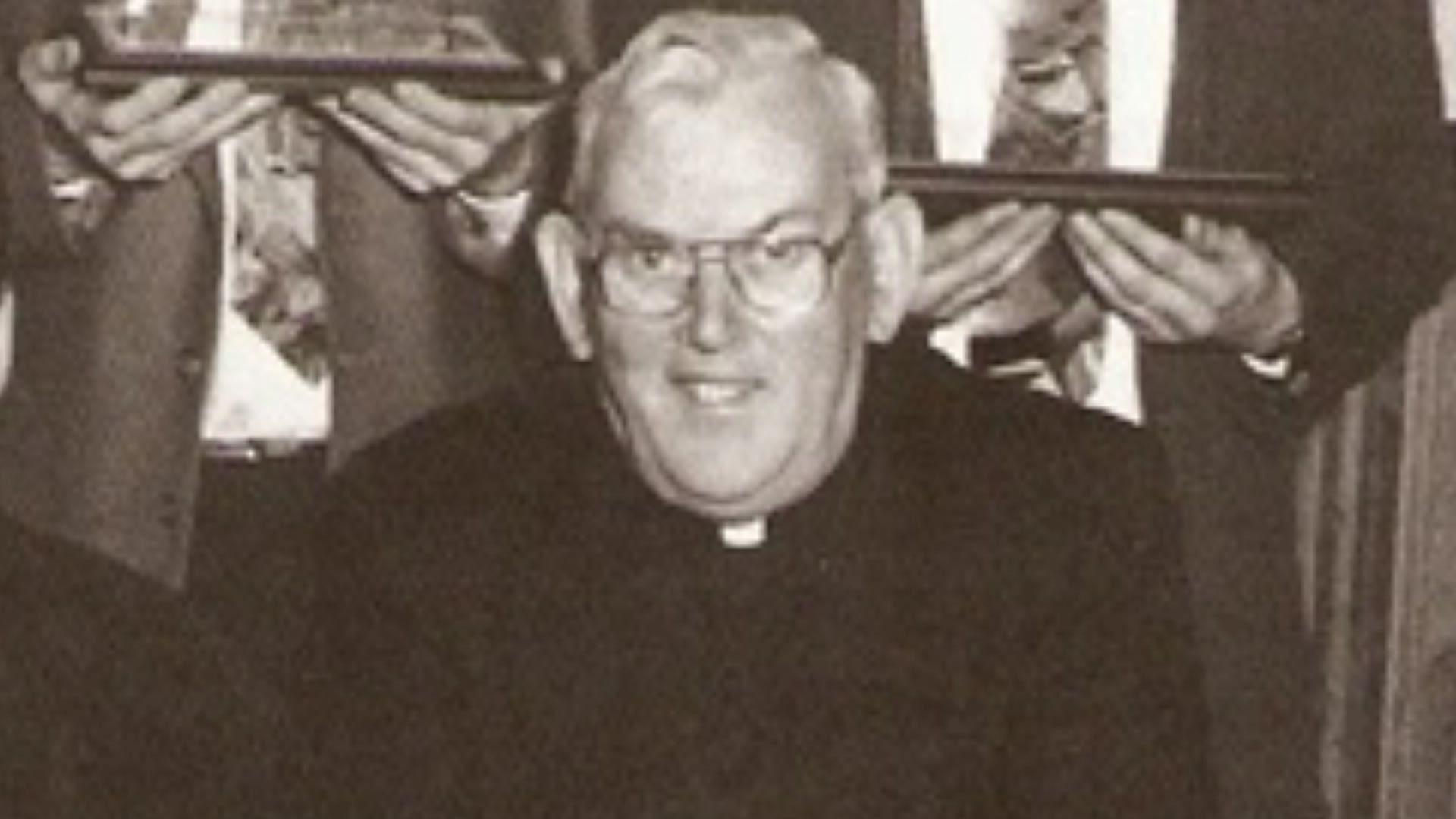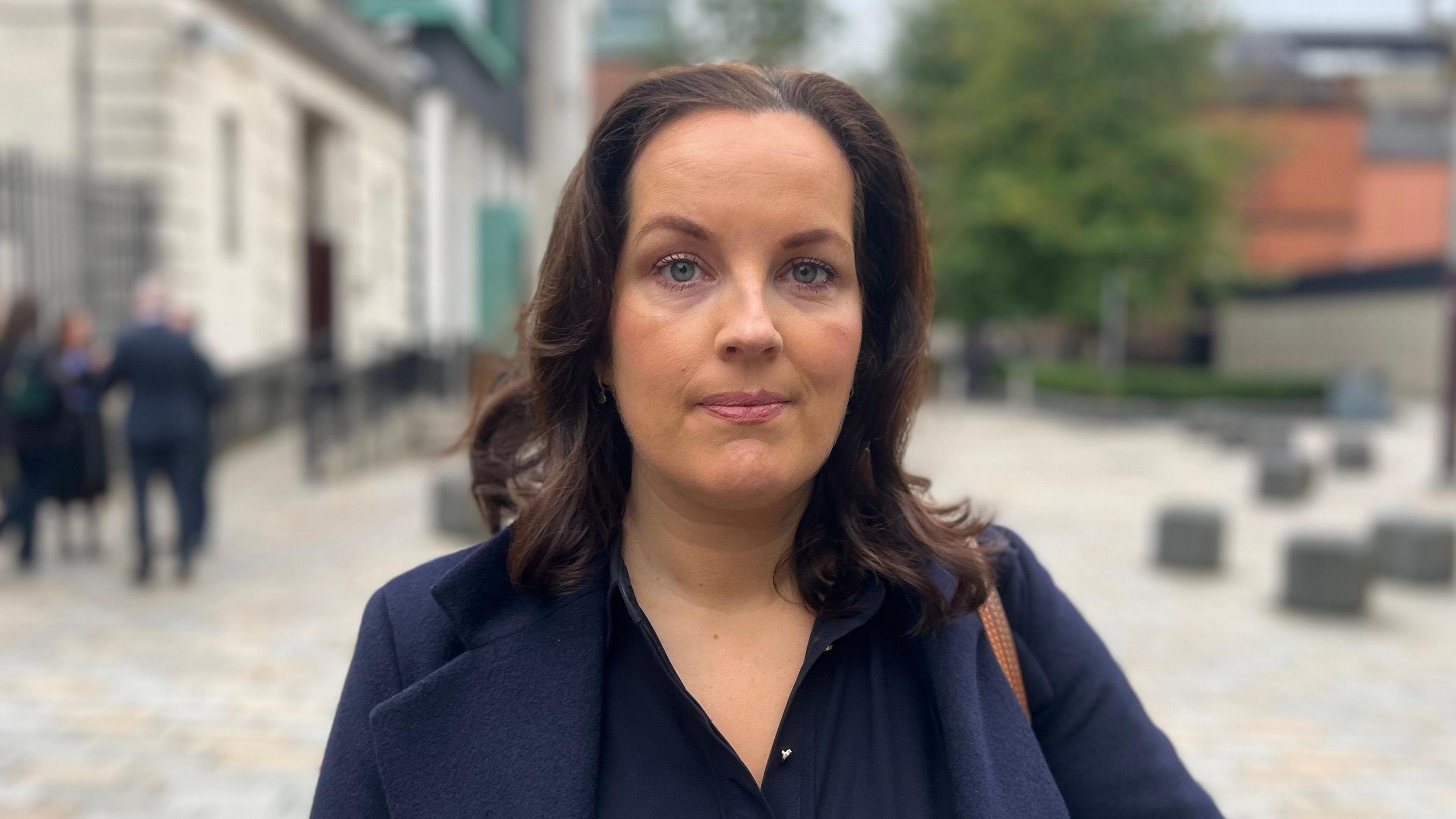Five men to receive £1.2m in damages in priest sex abuse case

The late Fr Malachy Finegan was accused of a long campaign of child sexual abuse but was never prosecuted or questioned by police
- Published
Five men who claimed a paedophile priest groomed and abused them at a school in Newry, County Down, are to receive a combined total of more than £1.2 million in damages.
The final settlements were reached in their High Court action over historic physical and serious sexual assaults inflicted by the late Fr Malachy Finegan.
The men will also be given a written apology from the head of the Catholic Church in Ireland on behalf of the Diocese of Dromore, their lawyer said.
The men, who cannot be identified, sued the Diocese of Dromore and the board of governors at St Colman's College over failures to protect them from the priest.
The men were pupils at St Colman's between 1972 and 1984.
The settlements do not involve any admission of liability by either defendant.
Finegan was accused of a wider campaign of child sexual abuse but never prosecuted or questioned by police about claims made against him.
He died in 2002, but years later it emerged that the Diocese of Dromore had settled a previous case taken by one of his alleged victims.
At that stage the Board of Governors at St Colman's condemned the physical, sexual and emotional abuse inflicted by Finegan who also served as its president.
'Most sadistic, cruel and serious nature'

Solicitor Claire McKeegan said her clients have called for a full public inquiry into clerical abuse in Northern Ireland
Solicitor Claire McKeegan of Phoenix Law, who represents all five plaintiffs, said the cases involved "abuse of the most sadistic, cruel and serious nature".
"Our clients at a time of their formative years, when they were children in a prestigious boarding school, were abused by its president Malachy Finegan," Ms McKeegan said.
"They were harmed and they have carried this burden right throughout their lives."
Ms McKeegan said her clients have called for a full public inquiry into clerical abuse in Northern Ireland.
"It's important that in cases such as this where a survivor has carried this trauma throughout their lives that there is accountability.
"All too often these cases have been endured in silence by the survivors and it's something that they would see as justice if the people who knew what was going on, and when, were compelled to give evidence," Ms McKeegan said.